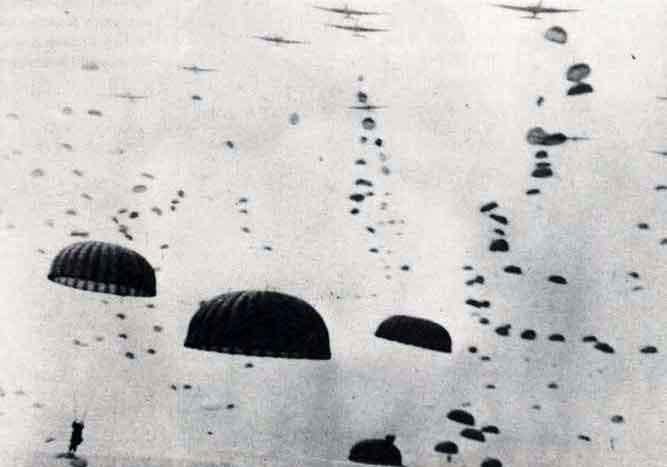Jerry Weinberger reviews The United States of Beer: A Freewheeling History of the All-American Drink by Dane Huckelbridge:
In rich and full detail, Huckelbridge tells the story of America’s love affair with beer. Even before Europeans set foot on the new continent, Native Americans made beer for fun and religious purposes from a wide variety of vegetable matter. Our Dutch and English forbears brought their beer — and their beer preferences — with them. In 1620, the Mayflower landed in Plymouth, at least in part for want of enough beer for both passengers and crew. When the Arbella sailed into Boston Harbor in 1630, it was laden not just with Puritans but also with 10,000 gallons of beer and 120 hogsheads of malt. The English in New England drank dark and cloudy ales made from fire-roasted malt and top-fermenting yeast. The Dutch in New Netherlands preferred drafts lighter in body and mouthfeel; they added rye, wheat, and oats to the barley. The English put an end to New Netherlands in 1664, but that didn’t end the war — as it would eventually prove to become — between the light and the dark worlds of beer. Huckelbridge approaches his subject from a regional point of view. National tastes sprang from regional ones. Beer tides flowed North to South, turned westward to California, and then doubled back East in the late twentieth century.
Our English forbears came relatively late to the use of hops in beer, as was done on the European Continent in the ninth century. As late as the early sixteenth century, hops were thought of in England as “a wicked and pernicious weed.” In Europe, brewing was done by large, organized monasteries, while in England it remained largely a household craft. The larger European producers had to worry more about consistency and spoilage than did the home-brewing English; the hop, though essential to the taste of beer as we know it, was originally used as a preservative, with the appreciation of bitterness following on the utility of anti-sepsis. As English brewing took on a more industrial tone, the uses of the hop became clear, and so the Pilgrims aboard the Mayflower could drink safe beer rather than brackish and polluted water. By the time of the revolutionary crisis, English economic policy and regulation had increased the price of barley and hops so much that cider and rum began to edge out beer as the preferred drink of New Englanders. The Sons of Liberty — including Samuel Adams and John Hancock — rebelled for beer as much as for independence.
[…]
When American beer recovered, it did so in the Midwest, and in a new form: lager. What we now think of as American beer (Budweiser, Busch, Pabst, Miller, etc.) sprang from the habits and tastes of German immigrants in Midwestern cities. Their lager beers were rich and full-flavored, but were somewhat lighter and milder than “the darker and more fragrant British-style” ales they eventually displaced. Huckelbridge describes in some detail the history of German brewing from Roman times through the sixteenth century, when lager yeast was discovered as an alternative to ale yeast. This new yeast strain originated in the cold forests of Patagonia and made its way by accident to Europe — and especially to Bavaria.
And how American beer got its (well-deserved at the time) reputation for blandness:
In the decades surrounding the turn of the twentieth century, two forces converged to transform our national drink: technological innovation and Prohibition. Before the Volstead Act went into effect in January 1920, technological and economic changes had been at work degrading the quality of American beer. New kiln technology made it possible to roast malts with no direct contact with the heat, which made for fewer notes of smoke and slag. Likewise, temperature controls made it possible to make lighter and “crispier” brews. The use of American six-row barley, which is higher in enzymes than German two-row barley, enabled brewers to employ cheaper, adjunct grains such as corn, wheat, and rice—all of which made for a sweeter and flimsier beer. Pasteurization increased shelf life, lessening the need for preservative alcohol and hops. Artificial carbonation replaced the traditional practice of adding live yeast to the finished brew, which improved taste but was less consistent than artificial carbonation. Add to this the advent of advertising and refrigerated rail transportation, and we were on the verge of becoming the United States of Bland Beer. Prohibition delivered the death blow.
After the Volstead Act’s repeal, America was in the grip of the Great Depression. Beer drinkers—and brewers—focused on the cheap and not the good. The result was a pale and watery brew “served up in cans across the county … and the final product bore only a passing resemblance to the rich and hoppy lagers that German immigrants had first brought to this country.” Prohibition ruined the beer industry nationwide and drove alcohol underground, producing a significant change in American tastes: speakeasies learned to disguise low-quality whiskey and gin in sweet “cocktails.” As a result, a generation of Americans came of age with sweet-tooth tongues allergic to the bitter hop or the malty malt. By the 1950s, America was the land of the macrobrew: thin and flaccid sweet suds, distinguishable only by the brand names on the can.






